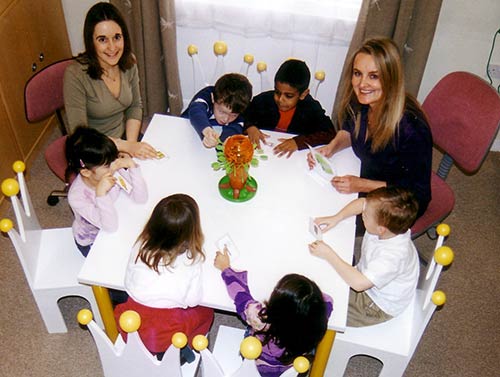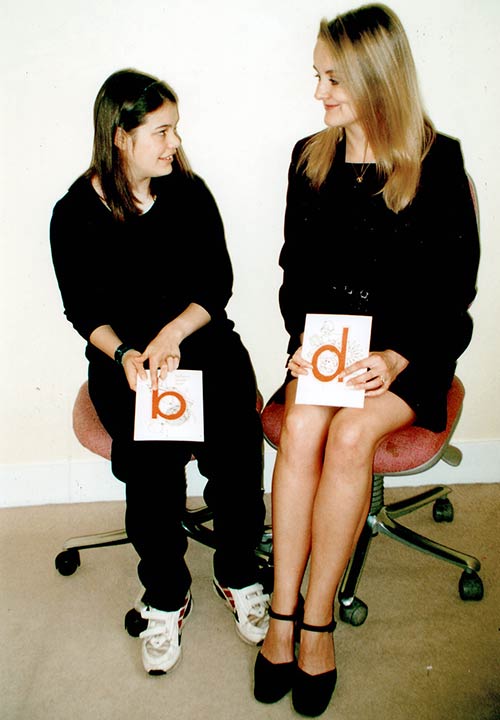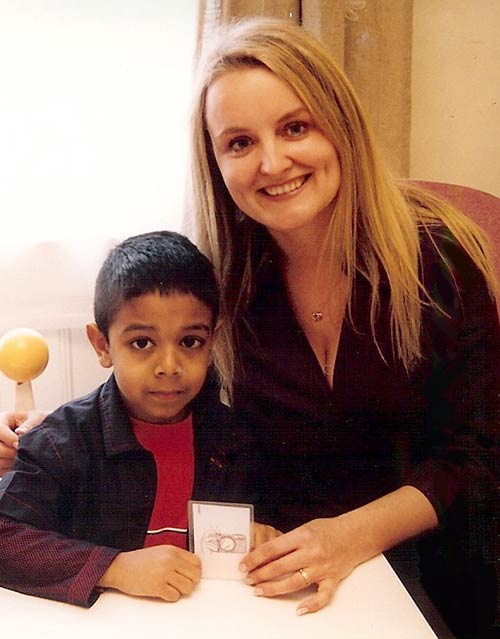

Dyspraxia
Dyspraxia Therapy

Sarah discusses each new referral directly with the parent or guardian of the child before booking an appointment for them. She accepts referrals directly from parents. She also accepts employment from local schools and local health authorities. She receives referrals mainly from parents whose children have been successfully treated by her and also from other professionals such as Speech and Language Therapists, Teachers, Special Educational Needs professionals, Psychologists, Doctors, Paediatricians, Consultants, Health Visitors, Nursery Nurses, School Nurses, Occupational Therapists and Physiotherapists.

A detailed assessment is necessary before commencing therapy. This will determine the level at which your child’s speech, vocabulary or language is breaking down and whether he or she also has problems distinguishing and processing sounds in words. The structure of your child’s lips, tongue, jaw and palate will be examined and his or her ability to control their movements. The quality of your child’s voice will also be assessed. If necessary, any reading and spelling skills can also be assessed. Results are discussed fully with parents.
It is essential to establish a supportive relationship between the therapist, your child and yourselves. To this end, the first objective in therapy is to create a relaxed and friendly environment. Therapy is fun and involves toys and games which your child enjoys. Your child’s favourite characters are used. Letting your child choose materials and games during his or her therapy session is important for your child’s enjoyment and self-esteem. Therapy is tailored to your child’s needs and personality.
Therapy at the Speech, Language and Literacy Therapy Practice can begin as young as two years of age as developing good communication skills is essential for socialising and learning. Therapy for oral or verbal dyspraxia is structured and includes work on speech discrimination, speech sound awareness, production of single sounds, simple and complex words, sentences and connected speech. Invaluable therapy tools include picture symbols which represent the consonant and vowel sounds in speech, finger cues which make the child aware of how the tongue and lips are placed when making a speech sound, and pictures and toys representing target words.
Your child’s strengths are used to overcome speech and language difficulties in a playful manner. Parents are present during assessment and therapy sessions. At the end of each session parents and children receive verbal feedback, picture materials for home practise and a written record of therapy targets covered with ideas to help in a Speech and Language Therapy book for parents. This book can also be shown to other professionals involved with your child.
Individual and group therapy, regular and intensive therapy are all available at the Practice.

I cannot thank Sarah enough and would not hesitate in recommending her to other parents and their children; her friendly, bubbly, understanding nature and extensive experience in speech and language therapy make Sarah a real life Wonder Woman in my eyes!
Cara S